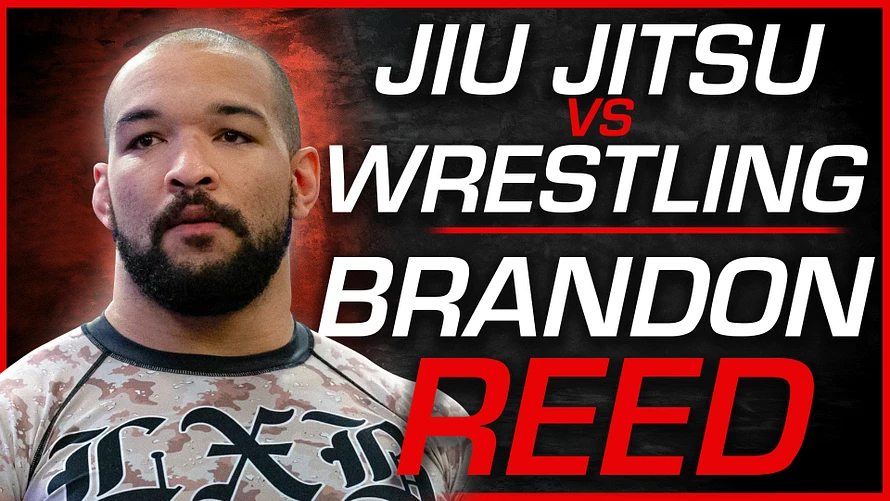Wrestling Meets Jiu-Jitsu: Brandon Reed's Journey and Insights on Grappling's Evolution

Brandon Reed, a four-time All-American wrestler turned submission grappler, recently shared his unique perspective on the intersection of wrestling and Brazilian Jiu-Jitsu, offering valuable insights into both sports and their evolving relationship. As he prepares for his ADCC debut, Reed's journey highlights the challenges and opportunities that arise when transitioning between grappling disciplines.
The Wrestling-to-Jiu-Jitsu Pipeline
Reed's introduction to Jiu-Jitsu came through an unconventional path - his wrestling coach was a brown belt who exposed him to the art early on. However, he notes that this exposure was rare in the wrestling community: "As far as the outlook of Jiu-Jitsu from wrestlers, it's almost non-existent. No one talks about Jiu-Jitsu." This stands in stark contrast to how the Jiu-Jitsu community views wrestling, where there's immense respect for wrestlers' conditioning and mental toughness.
Comparing the Disciplines
When asked about the differences between wrestling and Jiu-Jitsu, Reed offers a nuanced perspective: "Jiu-Jitsu in its own right is so much harder than wrestling... the technical aspect of Jiu-Jitsu is so much harder than wrestling. Wrestling's physicality is so much more difficult than Jiu-Jitsu." He emphasizes that both sports are challenging in their unique ways, noting that while wrestling demands more cardiovascular endurance, Jiu-Jitsu's technical complexity allows less athletic practitioners to succeed against more physically gifted opponents.
The Transition Challenge
Reed's personal experience transitioning to Jiu-Jitsu highlights common challenges wrestlers face. His first competition ended in a 13-second heel hook loss, demonstrating how certain wrestling habits can become liabilities in Jiu-Jitsu. "In front headlocks in wrestling... you learn to grab the elbow and hold it here. You do that in Jiu-Jitsu, and you're getting guillotined," he explains.
Advantages and Disadvantages
While wrestling background provides clear advantages in areas like takedowns, scrambling ability, and pinning, Reed emphasizes that success in high-level Jiu-Jitsu requires much more than just wrestling skills. He points to Nicky Rodriguez as a rare example of a wrestler finding immediate success in major Jiu-Jitsu competitions, attributing this success to a combination of exceptional athleticism, discipline, and strategic guidance from experienced coaches.
The Future of Grappling
Discussing the upcoming ADCC and CJJ events, Reed offers candid thoughts about wrestlers entering submission grappling competitions: "I think they're going to do horrible... Wrestling is not Jiu-Jitsu." He emphasizes that success in submission grappling requires dedicated training in submission defense and guard work, aspects entirely foreign to pure wrestlers.
Training for ADCC
Currently preparing at Pedigo Submission Fighting, Reed describes his training approach: "We're just game planning a lot... for me in particular, I know there's going to be lots of leg lockers." He emphasizes the importance of having training partners who can help address specific weaknesses, particularly in areas like leg lock defense that don't exist in wrestling.
Key Takeaways:
-
Technical Adaptation: Success in transitioning between grappling sports requires significant technical adjustments and willingness to learn new skills.
-
Mental Approach: The ability to accept losses and maintain discipline during the learning process is crucial for wrestlers entering Jiu-Jitsu.
-
Strategic Planning: Having experienced coaches who understand both disciplines can significantly impact success in competition.
-
Sport-Specific Skills: While wrestling provides valuable attributes, specific Jiu-Jitsu skills like guard work and submission defense are essential for high-level competition.
Brandon Reed's insights offer a valuable perspective on the relationship between wrestling and Jiu-Jitsu, highlighting both the challenges and opportunities in transitioning between grappling sports. His experience suggests that while a wrestling background can provide advantages, success in high-level Jiu-Jitsu requires dedicated training in submission grappling-specific skills and a willingness to adapt to a different competitive environment. different competitive environment.